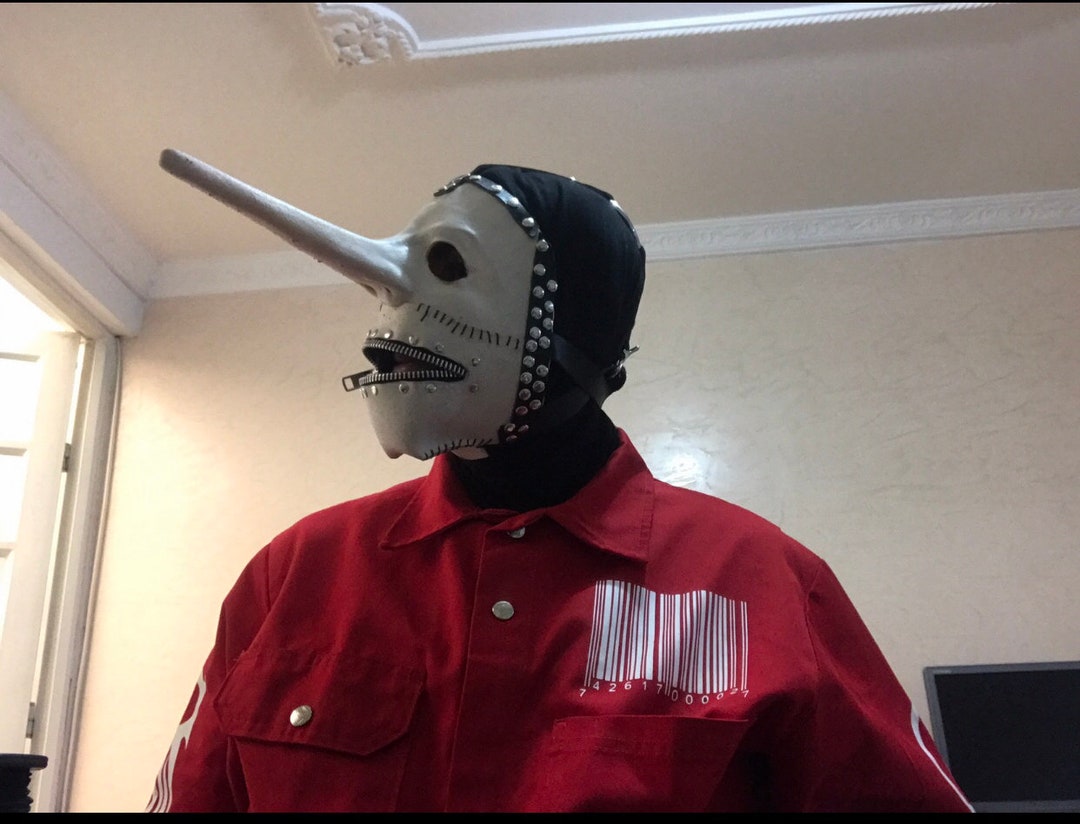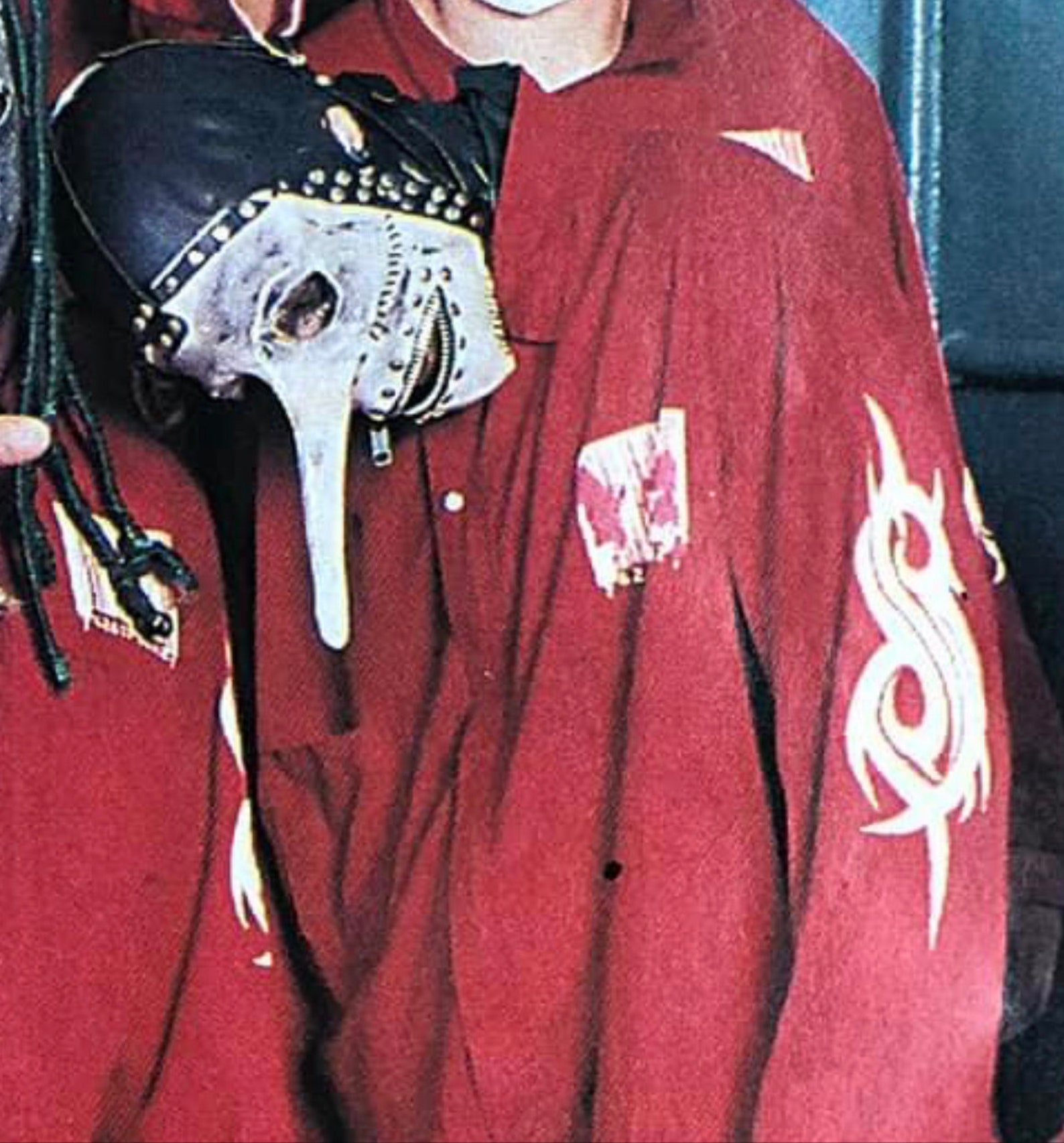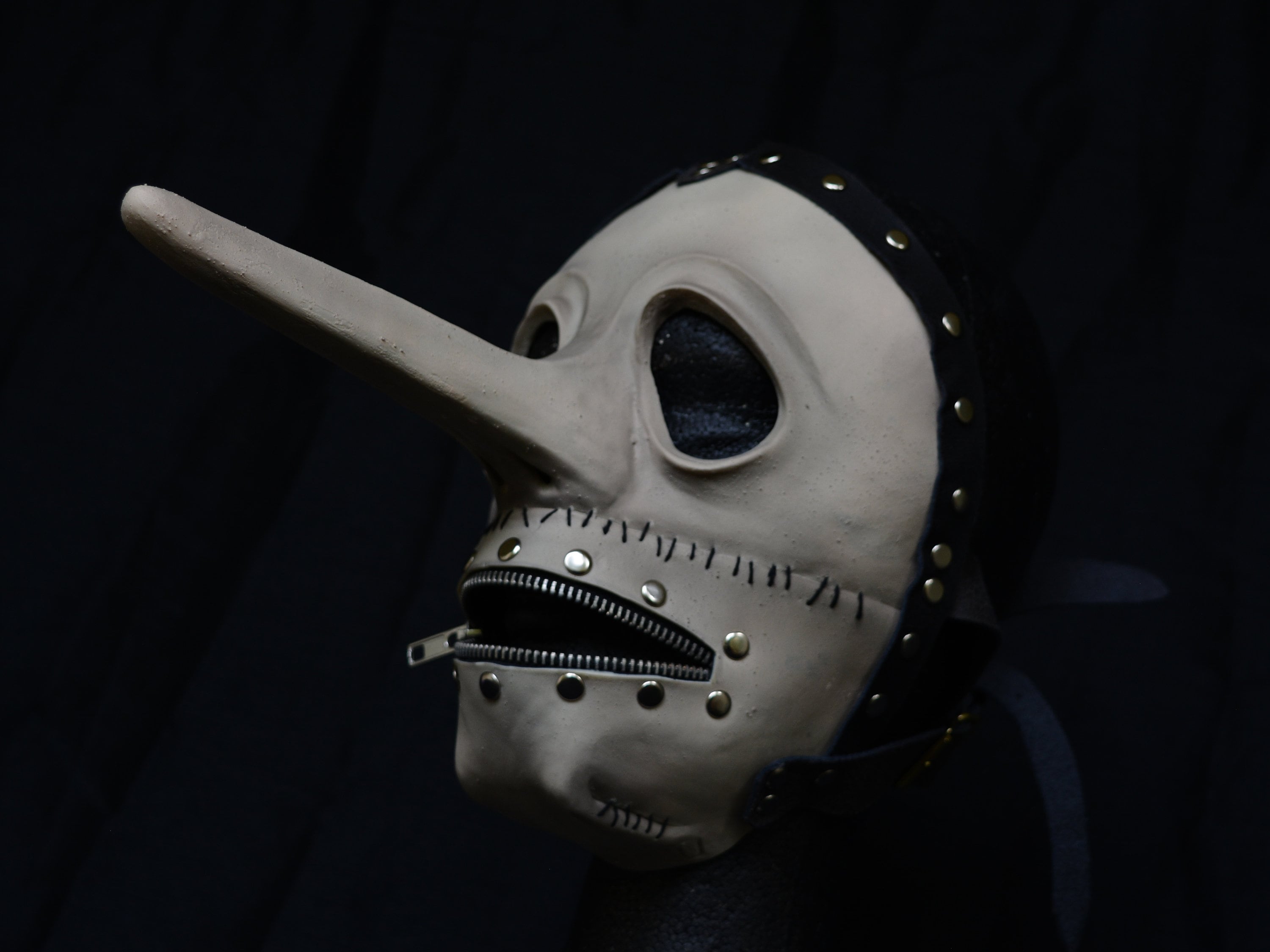Chris Fehn Slipknot: Unmasking A Pivotal Chapter In Metal History
When you think about the raw, visceral energy of Slipknot, certain faces and figures instantly come to mind. For many years, one of those unmistakable presences was Chris Fehn, the band's percussionist, known for his unique mask and lively stage antics. His time with the group was a period of incredible growth and intense performances, shaping much of what fans came to adore about the Iowa metal giants. So, what happened to this integral member, and how did his departure reshape one of music's most formidable acts?
His story, you know, really highlights how deeply personal and professional relationships can intertwine within a creative collective. The sudden news of his split from Slipknot sent ripples through the music community, leaving many fans with questions and a sense of curiosity. It was, in some respects, a moment that felt quite unexpected for those who had followed the band's journey for so long.
This article will take a close look at Chris Fehn's significant contributions to Slipknot, explore the circumstances that led to his eventual departure, and consider the lasting impact of this major change on the band's ongoing path. We will also address some of the most common questions people have about his story, giving you a clearer picture of this rather important chapter in the band's history.
Table of Contents
- Who is Chris Fehn? A Look at the Man Behind the Mask
- Chris Fehn's Unique Contribution to Slipknot's Sound
- The Unforeseen Departure: Why Chris Fehn Left Slipknot
- Life After Slipknot: What Chris Fehn is Doing Now
- The Legacy of Chris Fehn and Slipknot's Evolution
- Addressing Your Questions: People Also Ask About Chris Fehn
- A Look Back and Forward
Who is Chris Fehn? A Look at the Man Behind the Mask
Chris Fehn, born on February 24, 1973, in Ankeny, Iowa, became a recognizable figure in the heavy metal scene as one of Slipknot's percussionists. Before joining the masked nine, he had a background in golf, even earning a scholarship for it. His journey into the world of music, however, took a very different turn, eventually leading him to one of the most intense and visually striking bands of his generation. He joined Slipknot in 1998, just as the group was really starting to make waves, bringing his distinct style and energy to their already powerful sound. His presence, you know, was a pretty big part of their early success.
Fehn was known for his long-nosed mask, a design that became an iconic part of Slipknot's visual identity. On stage, he was a whirlwind of motion, often seen headbanging with incredible force and swinging his baseball bat during live shows. He provided a crucial rhythmic layer to the band's complex sound, working alongside Shawn "Clown" Crahan and Joey Jordison (later Jay Weinberg) to create that signature, thunderous percussive attack. His backing vocals also added another dimension to their tracks, contributing to the band's overall vocal intensity. He was, honestly, a very active and visible member.
Here's a quick look at some personal details about Chris Fehn:
| Full Name | Christopher Michael Fehn |
| Date of Birth | February 24, 1973 |
| Place of Birth | Ankeny, Iowa, USA |
| Role in Slipknot | Custom Percussion, Backing Vocals |
| Years Active with Slipknot | 1998 – 2019 |
| Signature Mask Element | Long nose, sometimes zipper mouth |
Chris Fehn's Unique Contribution to Slipknot's Sound
Chris Fehn's role in Slipknot was far more than just hitting things; he was a vital part of the band's sonic and visual identity. His custom percussion setup, which included a variety of beer kegs and other unusual items, added a distinct, raw texture to Slipknot's already aggressive sound. These elements helped create the chaotic yet controlled rhythmic backdrop that made their music so incredibly powerful. He really helped build that wall of sound, you know, that fans came to expect.
Beyond the instruments, Fehn's stage presence was, frankly, legendary. His headbanging was so intense that it became a trademark, often seeming to defy physics. He would swing his baseball bat, interact with the crowd, and just generally bring an unhinged energy to every performance. This visual spectacle was just as important as his musical contributions, making him a captivating figure to watch during their live shows. It was, arguably, a very memorable part of their concerts.
He also contributed backing vocals, adding to the layers of screams and shouts that are a hallmark of Slipknot's vocal arrangements. This combination of percussive skill, intense stage theatrics, and vocal support made him an irreplaceable piece of the Slipknot puzzle for many years. His absence, you know, was definitely felt by many people who loved the band's live performances.
The Unforeseen Departure: Why Chris Fehn Left Slipknot
The news of Chris Fehn's departure from Slipknot in March 2019 came as a shock to fans around the globe. For over two decades, he had been a constant, recognizable force within the group. The reasons behind his exit were, in fact, quite complex and centered primarily around financial disagreements. It was a situation that, honestly, nobody really saw coming.
The Lawsuit and Financial Disputes
The core of the issue stemmed from a lawsuit Fehn filed against the band. He alleged that he had not been properly compensated for his touring and merchandising earnings. He claimed that band members Corey Taylor and Shawn "Clown" Crahan had set up separate entities to collect money from the band, effectively cutting him out of his fair share. This legal action, naturally, brought a lot of private business matters into the public eye, which is never easy for a group.
Fehn's lawsuit sought a full accounting of the band's finances and demanded compensation for what he believed he was owed. Slipknot, through their legal representatives, initially stated that Fehn was no longer with the band and that his claims were unfounded. They emphasized that they were disappointed by his actions and that no member would ever point fingers at fans. This whole situation was, you know, a very public and messy affair.
The band's official statement at the time conveyed a sense of betrayal, suggesting that Fehn's actions had created an unworkable situation. They stressed their commitment to the fans and their music, implying that the dispute was a distraction from their creative process. The details of the lawsuit, you know, were pretty widely reported by various music news outlets at the time, offering a glimpse into the financial workings of a major touring act. You can find more about these reports on sites like Blabbermouth, for instance, which covered the unfolding events.
Impact on Band Dynamics and Fan Reactions
The departure of Chris Fehn truly impacted the band's internal workings and, very notably, how fans perceived the group. When a core member leaves a group, it can feel like a fundamental change to its very essence. The collective 'chemistry' of the members, that special blend of personalities and creative input, gets truly shaken. You could say, in a way, that such a profound event brings about rather drastic changes in how the group operates and interacts. It really highlights how sensitive and responsive any close-knit unit can be, much like a delicate system experiencing a powerful jolt. The band, in a sense, had to adapt quickly, and the fan base was, honestly, quite vocal about their feelings.
Fans expressed a wide range of emotions, from sadness and confusion to anger at the perceived injustice. Social media platforms were flooded with discussions about Fehn's legacy and the future of Slipknot. Many worried about how the band's live shows, known for their elaborate percussion, would be affected. The situation created a noticeable shift in the overall mood surrounding the band, as people wondered about the internal stability of their beloved group. It was, frankly, a very unsettling time for many long-time followers.
The band themselves had to address the situation publicly, attempting to reassure fans while also defending their position. This period was a significant test for Slipknot, forcing them to navigate a very public and emotionally charged situation while also preparing for new music and tours. It was, basically, a challenging time for everyone involved, both within the band and among their dedicated supporters.
Life After Slipknot: What Chris Fehn is Doing Now
Since his departure from Slipknot, Chris Fehn has, in fact, kept a relatively low profile compared to his highly visible years with the band. Many fans have wondered about his activities and whether he would return to the music scene. While he hasn't joined another major touring act in the same capacity, he has, you know, been involved in a few projects that offer glimpses into his life post-Slipknot.
Fehn has reportedly pursued interests outside of the intense touring schedule that comes with being in a band like Slipknot. There have been whispers and occasional social media posts suggesting he's been involved in various personal endeavors. He has, for instance, been seen engaging with fans online from time to time, offering small updates about his life. It seems he's enjoying a somewhat quieter existence, at least for now, compared to the constant spotlight he was under for two decades.
While there hasn't been a definitive announcement of him forming a new band or releasing solo music on a large scale, the possibility always exists. Musicians, after all, rarely truly stop creating. His future in music, you know, remains a topic of speculation for many who admired his contributions to Slipknot. It's really quite interesting to see how different paths open up for people after such a significant change in their professional lives.
The Legacy of Chris Fehn and Slipknot's Evolution
Chris Fehn's time with Slipknot left an undeniable mark on the band's history and sound. His percussive contributions were a fundamental part of their signature sonic assault, adding layers of rhythmic complexity and raw power. He helped craft the sound that defined Slipknot for generations of metal fans, making their music truly unique. His visual presence, too, was a big part of their overall appeal, making him a memorable figure in the band's early days and beyond.
After his exit, Slipknot introduced a new, unnamed percussionist, affectionately dubbed "Tortilla Man" by fans, later revealed to be Michael Pfaff. Pfaff stepped into a role that had been shaped by Fehn's unique style, and he has, you know, since carved out his own place within the band. The band's live shows continued, adapting to the change in personnel while still maintaining their intense performance standards. It was, honestly, a pretty seamless transition in terms of keeping the show going.
Fehn's departure, while challenging, ultimately became a chapter in Slipknot's ongoing story of evolution and resilience. It showed that even with significant changes to its lineup, the band could continue to innovate and deliver the music their fans expected. His legacy remains intertwined with some of Slipknot's most iconic albums and performances, a reminder of the powerful synergy that once existed within the nine-member collective. It's really quite something to see how a band can keep moving forward, even after big changes like this.
Addressing Your Questions: People Also Ask About Chris Fehn
Why did Chris Fehn leave Slipknot?
Chris Fehn left Slipknot primarily due to a financial dispute. He filed a lawsuit against the band, alleging that he had not received his fair share of earnings from touring and merchandise. He claimed that other band members, specifically Corey Taylor and Shawn "Clown" Crahan, had set up separate companies to collect money without his knowledge. This legal action ultimately led to his removal from the band in March 2019. It was, basically, a disagreement over money that led to the split.
What is Chris Fehn doing now?
Since leaving Slipknot, Chris Fehn has maintained a relatively private life. He has not joined another major band or embarked on a large-scale musical project that has been widely publicized.


